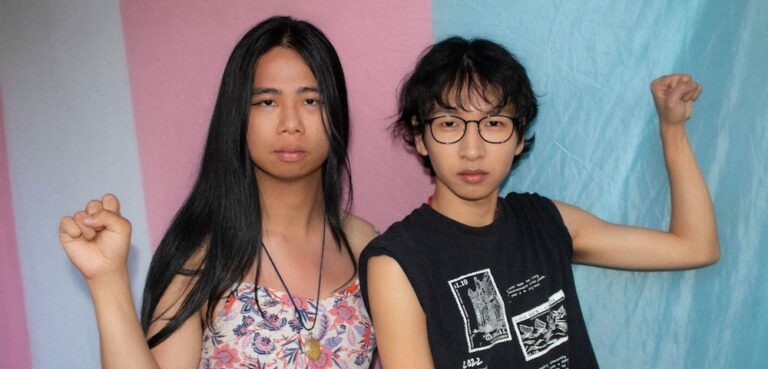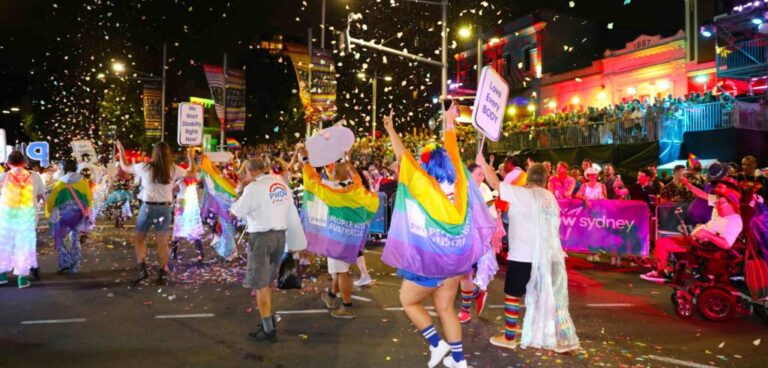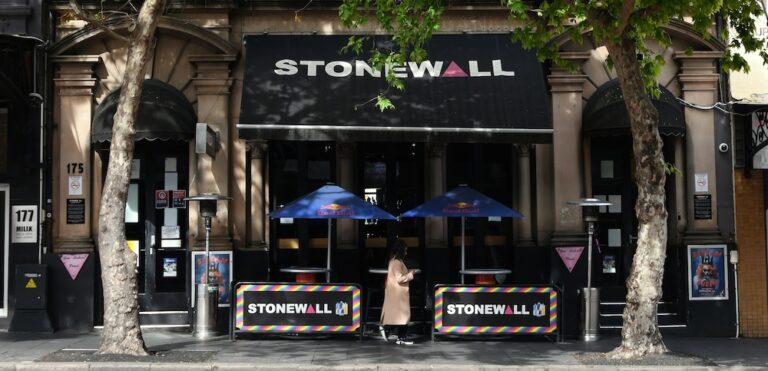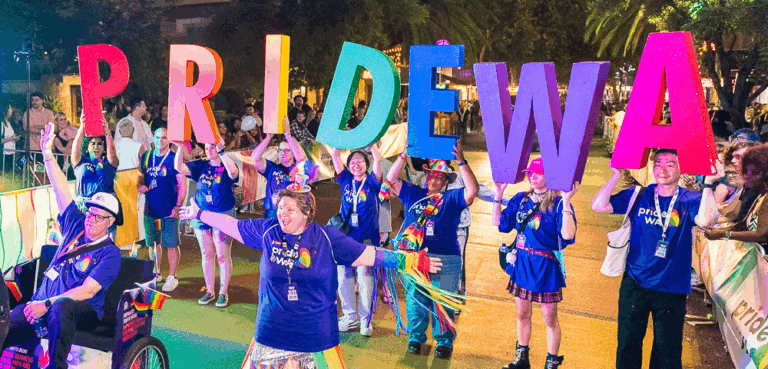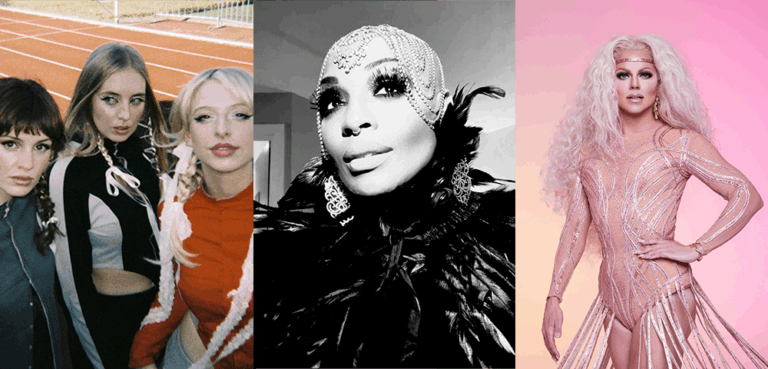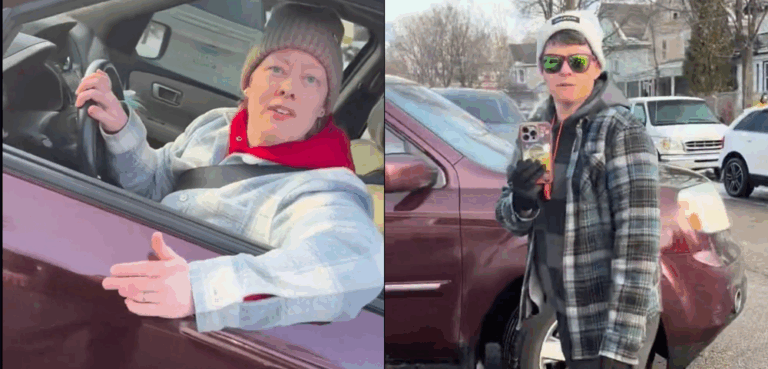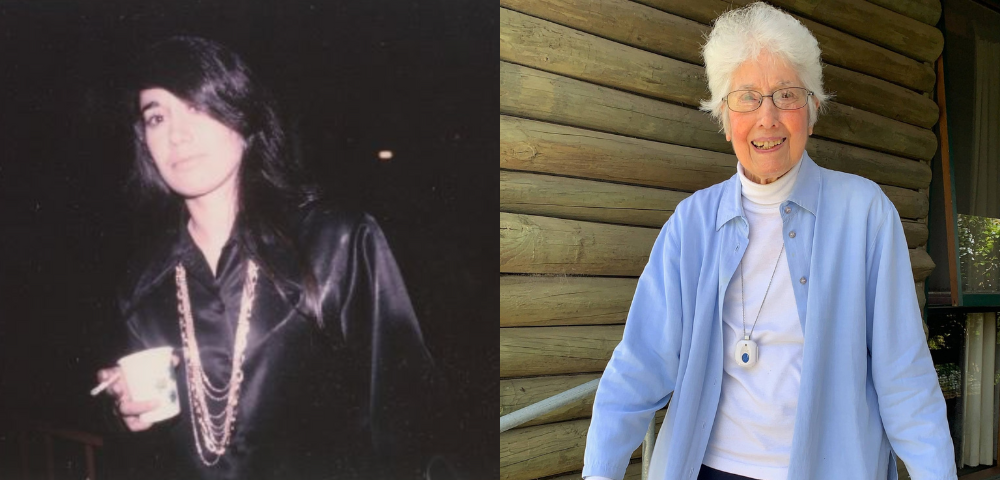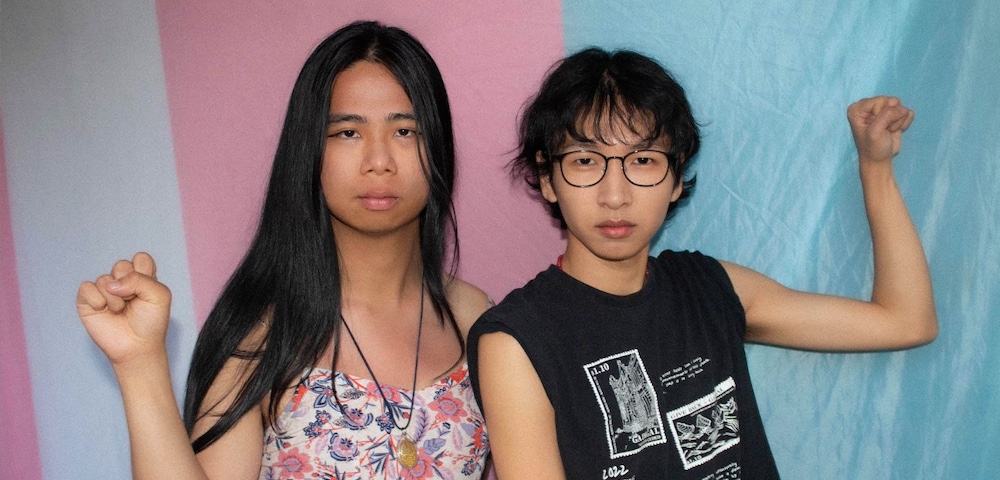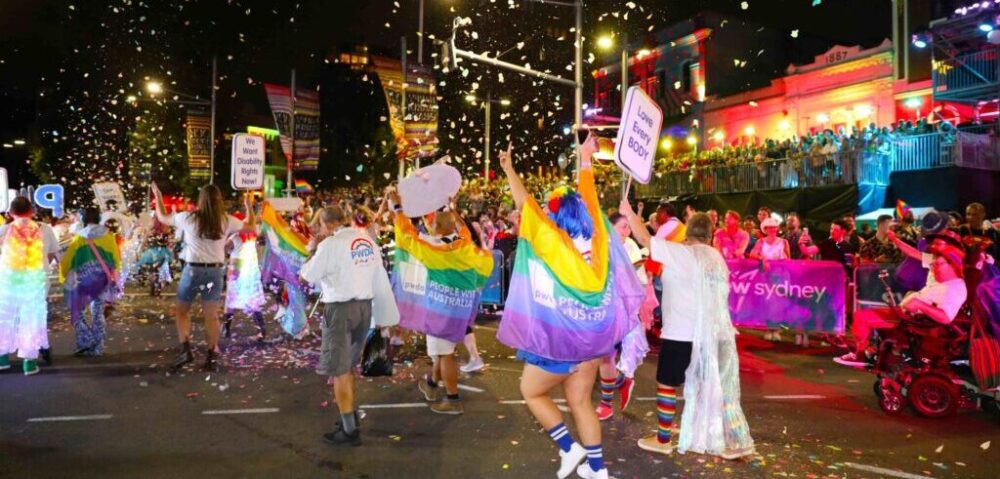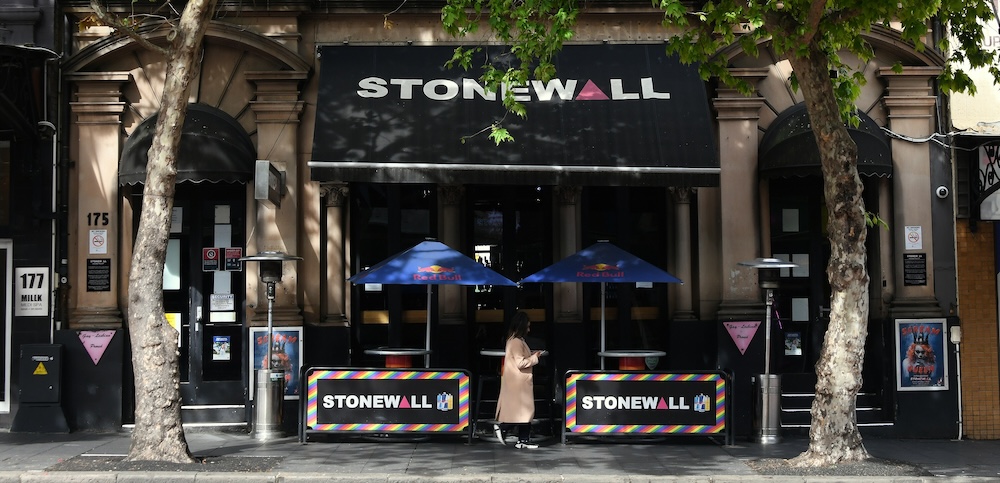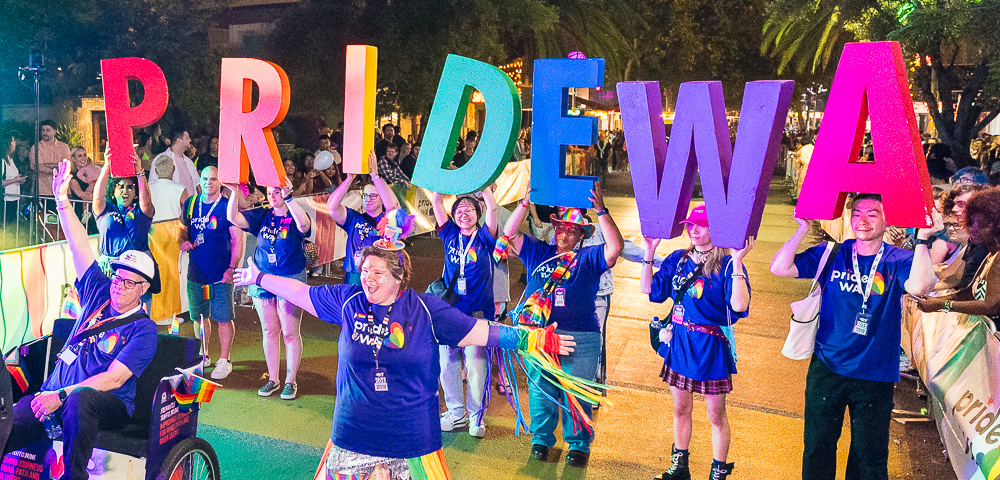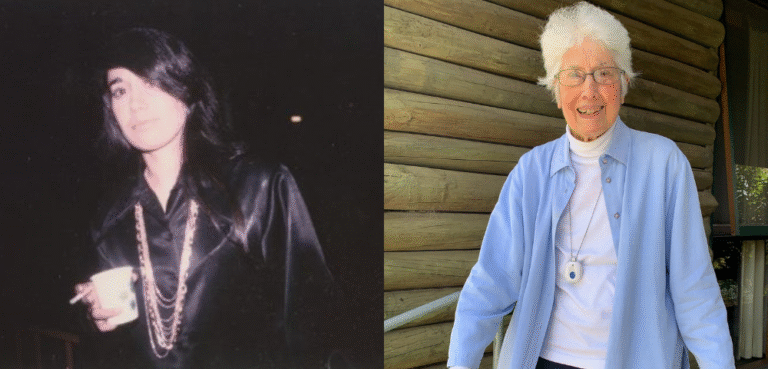
NSW Police Arrest Four People At Sydney Gay And Lesbian Mardi Gras Parade
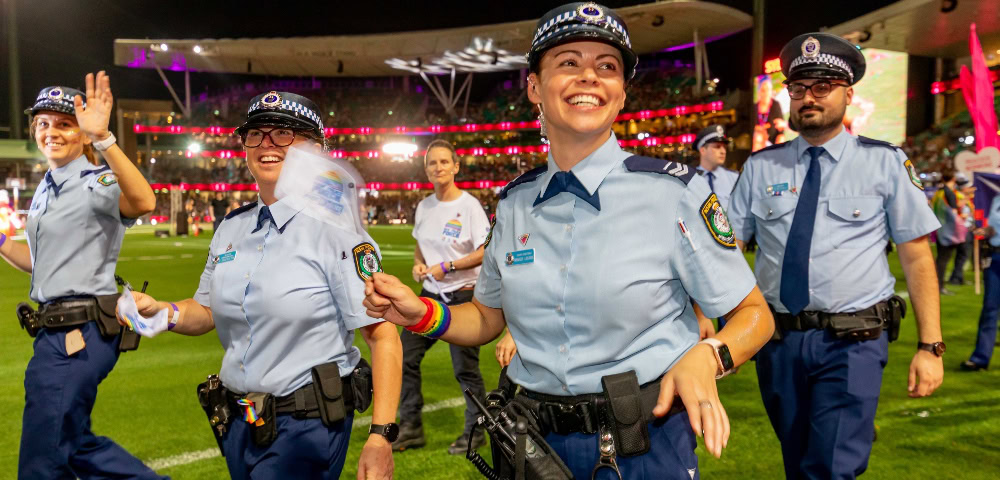
The New South Wales Police on Saturday arrested four people for allegedly entering the pitch during the Sydney Gay and Lesbian Mardi Gras Parade at the Sydney Cricket Ground.
The police said that “officers arrested four people within the SCG after they entered the pitch during the parade about 8.45pm. They were removed from the SCG and issued banning notices.”
Whistleblowers, Activists, and Communities Alliance (WACA), a grassroots community alliance group, said its members had been dragged off by the police at the parade. The alliance says it supports “communities to campaign to end war, defend human, environmental & civil rights & confront corporate corruption.”
This our WACA mate being dragged off by cops at pride. Send them some love https://t.co/C6uqEsTGn7
— WACA (@akaWACA) March 5, 2022
Pride In Protest Backs WACA
Pride in Protest in a statement said that it supported WACA’s intervention and “their call to kick cops out of Mardi Gras.”
“Three protestors associated with WACA protested the presence of police in the parade, and two successfully marched on the grounds with a banner saying ‘No Pride in Police violence’ until they were removed by cops. A third was forced into a painful hold for no discernible reason before being dragged away,” said Pride in Protest.
“The do it yourself approach of WACA to protest as part of the parade – much like the Department of Homo Affairs has in previous years – is one that harks back to the original spirit of Mardi Gras where protesters demanded to ‘stop police attacks, on gays, women, and blacks’. WACA have far more right to be part of Mardi Gras than the cops. It is shameful that the cops continue to be offered space in Mardi Gras and Fair Day to promote themselves amidst their ongoing brutality against oppressed peoples.”
Pride In Protest said it strongly condemned the arrests. “It is appalling that there have been more arrests of community protesters in Mardi Gras in the last few years than there has been any accountability by any of the police officers who have been involved in the murder of First Nations peoples over the last forty years. It’s clear that there are far too many cops, and not enough justice.”
The presence of police in uniform at Pride events has generated much debate and discussion, with some groups calling for a ban.
“The police, and corrective services, are a leading perpetrator of violence toward First Nations peoples and have a long history of over-policing minorities. This is why we’ve seen the police removed from pride marches in Brisbane and Auckland, and large scale campaigns around Mardi Gras and MidSumma Pride for their removal,” added Pride in Protest.
Police ‘Pleased’ With Well-Behaved Crowd
The police said that in another incident they had charged a 17-year-old boy after he allegedly urinated on the ANZAC Memorial within Hyde Park around 10.45pm on Saturday. The teenager was charged with committing an offensive act in, on war memorial and possessing a prohibited drug and is due to appear before a children’s court on April 12, 2022.
The NSW Police had launched a “highly visible operation” at SCG and neighbourhoods including Oxford Street, Hyde Park, Moore Park “aimed at ensuring the safety and wellbeing of the community and targeting anti-social behaviour and alcohol-related violence.”
“Yesterday’s celebration was the perfect example of a successful Mardi Gras event, and I am proud that the officers of the NSW Police Force, an organisation that promotes diversity and inclusion, contributed to that success,” Operation Commander, Assistant Commissioner Gelina Talbot said in a statement.
“Despite the few incidents that officers responded to during the Mardi Gras operation, the majority of people were well-behaved and enjoyed their celebrations safely and responsibly.”
Hundreds of people had attended the community rally at Taylor Square on Saturday afternoon before the evening parade at the SCG. The rally was organised by the Community Action for Rainbow Rights (CARR) and Pride in Protest (PIP) to demand the withdrawal of Scott Morrison’s Religious Discrimination Bill, decriminalisation of sex work and increased investment in social services.
Assistant Commissioner Gelina Talbot, said “the overall behaviour of crowds, including the organisers and attendees of the protest at Taylor Square, Oxford Street and Hyde Park was pleasing.”
March For LGBTQI Visibility
Over 40,000 spectators attended the Mardi Gras Parade to watch around 5,800 marchers participate in the march.
Sydney Gay and Lesbian Mardi Gras CEO Albert Kruger underlined the importance of the parade for Australia and for LGBTQI visibility across the world.
“The Parade gives LGBTQIA+ people a global platform to celebrate the community, but to also draw attention to really important issues,” said Kruger.
“If the last few months have shown us anything, it’s that there is still a long way to go before equality is achieved. Our trans kids are still under continued attack, there are LGBTQIA+ people in Ukraine fighting for their freedoms, there are still countries around the world where LGBTQIA+ people are being killed because they are different.”
There were over 160 groups that marched in the parade including contingents from the NSW Police, Australians Federal Police and the Australian Defence Force.
Historic First, NSW Police Commissioner Marches In Parade
The NSW police contingent was led by Commissioner Karen Webb – the first time that a serving NSW Police commissioner marched in the Sydney Gay and Lesbian Mardi Gras.
“I am immensely proud of all of our officers and it was a pleasure walking with them at this important event,” said Commissioner Webb.
View this post on Instagram
This was a huge change from the first Mardi Gras march on June 24, 1978, when the marchers were met with police action and arrests.
Historian Graham Willet told the National Museum of Australia that many of the 53 people who were arrested “were badly beaten inside police cells.” The public uproar over the arrests led to the charges being dropped and Mardi Gras became an annual event.
